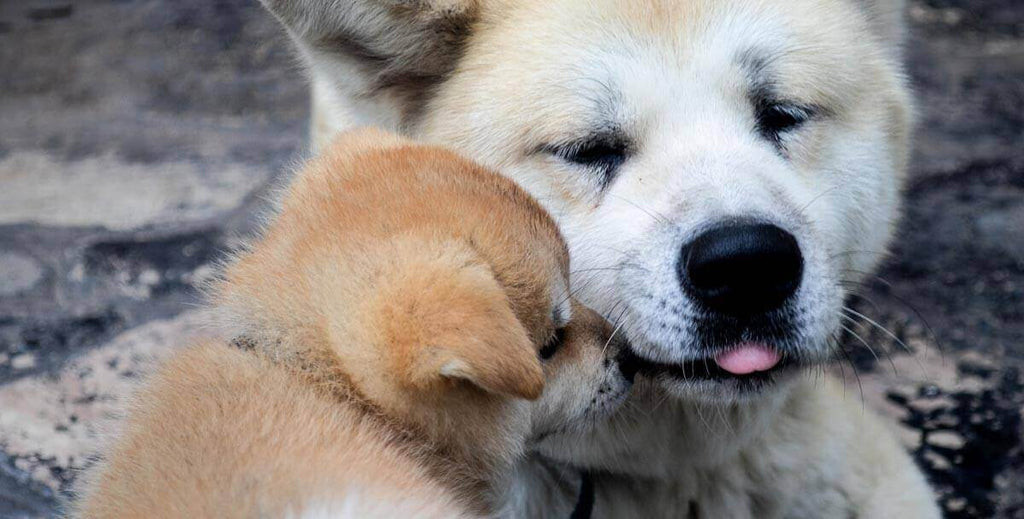Choosing the right diet for your puppy is crucial for their growth and overall well-being. Puppies have unique nutritional needs, especially during their rapid development in the first year or two of life. Traditionally, pet owners have navigated choices between wet and dry food, but the rise of grain-free options has added another layer of consideration. Understanding whether grain-free food is beneficial for puppies requires looking at the facts and dispelling common misconceptions. While grain-free diets have become a popular trend, mirroring human dietary interests, it’s important to assess if this approach truly offers advantages for your growing pup.
The debate around grain-free puppy food often sparks from a misunderstanding of canine digestion. There’s a common, but incorrect, belief that dogs, descended from wolves, are not biologically equipped to digest grains. This idea suggests that grains are unnatural for dogs and offer no nutritional value. However, the domestication of dogs over thousands of years has led to significant evolutionary adaptations, including the ability to digest and utilize grains effectively. In fact, grains can be a valuable source of energy for active puppies, providing carbohydrates that fuel their playful antics and growth spurts. The key is ensuring that any puppy food, whether grain-inclusive or grain-free, is expertly formulated to meet the specific nutritional requirements of this life stage.
 Happy and healthy puppies exemplify the benefits of grain-free puppy food.
Happy and healthy puppies exemplify the benefits of grain-free puppy food.
It’s also important to clarify the distinction between “grain-free” and “gluten-free.” These terms are not interchangeable. Gluten is a protein specifically found in certain grains like wheat, barley, rye, and oats. Many grains, such as rice and maize (corn), are naturally gluten-free. Therefore, while all grain-free puppy foods are inherently gluten-free, not all gluten-free puppy foods are grain-free. A puppy food labeled “gluten-free” might still contain grains like rice or corn, as these do not contain gluten. For puppies with specific sensitivities, understanding this difference is vital in selecting the appropriate diet.
So, is grain-free food inherently superior for puppies? Generally, no. For most puppies, a well-formulated traditional puppy food, containing grains, is perfectly healthy and often more economical. The emphasis should always be on nutritional balance. Whether a puppy food contains grains or not, it must provide the correct ratios of protein, fats, carbohydrates, vitamins, and minerals essential for healthy development. Grain-free puppy food tends to be positioned at a premium price point, but this cost doesn’t automatically equate to better health outcomes for all puppies. However, grain-free diets can be particularly beneficial in specific situations, primarily when a puppy exhibits signs of grain intolerance.
While grains are not among the most common allergens for dogs (beef and dairy are more frequent culprits), some puppies may indeed have sensitivities or intolerances to grains. If your puppy is persistently showing symptoms such as chronic itching, excessive licking or chewing, skin rashes or inflammation, bald patches, digestive upset including gas, loose stools, or vomiting, food intolerance could be a factor. If these symptoms arise and persist despite trying various traditional puppy foods, a grain-free diet might be a worthwhile consideration. It’s essential to consult with a veterinarian to rule out other potential causes for these symptoms and to get guidance on dietary changes.
For the vast majority of puppies, grain-inclusive puppy food is a completely healthy and appropriate choice. If your puppy thrives on a traditional diet, enjoys their meals, and is maintaining good health, there’s generally no compelling reason to switch to a grain-free option. The most crucial aspect of puppy nutrition is providing a balanced diet that meets all their developmental needs. However, for puppies suspected of having grain sensitivities or intolerances, grain-free food offers a valuable alternative to ensure they receive optimal nutrition without triggering adverse reactions. Ultimately, the “best” food for your puppy is one that supports their health, vitality, and happiness, whether it contains grains or not.

